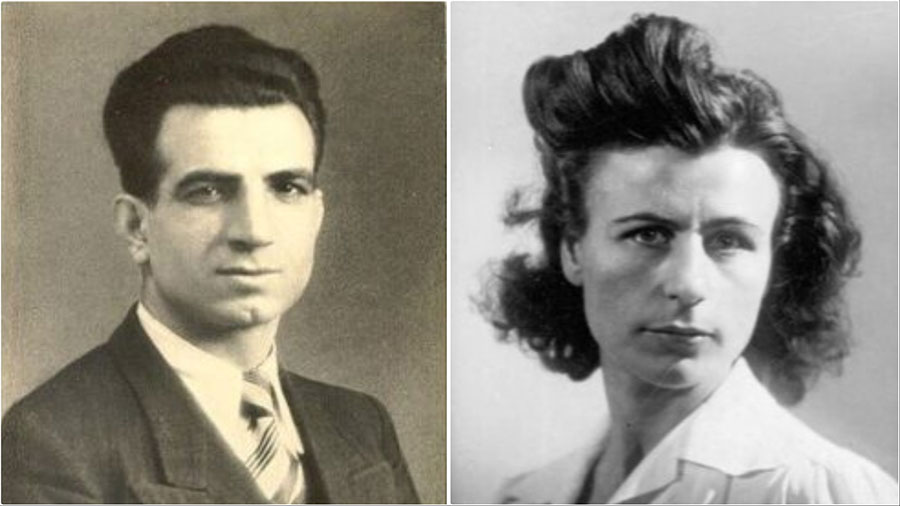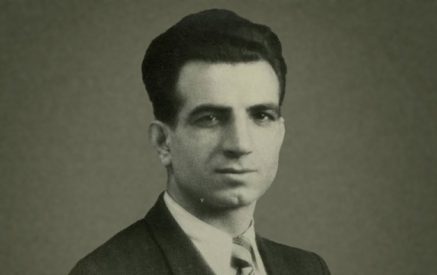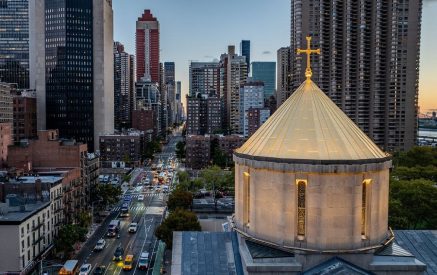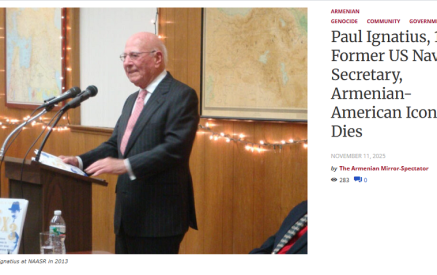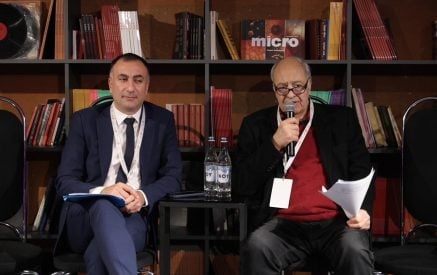by John Dekhane
“My dear Mélinée, my beloved little orphan,
In a few hours I will no longer be of this world. We are going to be executed today at 3:00. This is happening to me like an accident in my life; I don’t believe it, but I nevertheless know that I will never see you again.
Read also
What can I write to you? Everything inside me is confused, yet clear at the same time. I joined the army of liberation as a volunteer, and I die within inches of victory and the final goal. I wish for happiness for all those who will survive and taste the sweetness of the freedom and peace of tomorrow. I’m sure that the French people, and all those who fight for freedom, will know how to honor our memory with dignity. At the moment of death, I proclaim that I have no hatred for the German people, or for anyone at all; everyone will receive what he is due, as punishment and as reward. The German people, and all other people, will live in peace and brotherhood after the war, which will not last much longer. Happiness for all…I have one profound regret, and that’s of not having made you happy; I would so much have liked to have a child with you, as you always wished. So I’d absolutely like you to marry after the war, and, for my happiness, to have a child and, to fulfill my last wish, marry someone who will make you happy. All my goods and all my affairs, I leave them to you and to my nephews. After the war you can request your right to a war pension as my wife, for I die as a regular soldier in the French army of liberation.
With the help of friends who’d like to honor me, you should publish my poems and writings that are worth being read. If possible, you should take my memories to my parents in Armenia. I will soon die with 23 of my comrades, with the courage and the serenity of a man with a peaceful conscience; for, personally, I’ve done no one ill, and if I have, it was without hatred. Today is sunny. It’s in looking at the sun and the beauties of nature that I loved so much that I will say farewell to life and to all of you, my beloved wife, and my beloved friends. I forgive all those who did me evil, or who wanted to do so, with the exception of he who betrayed us to redeem his skin, and those who sold us out. I ardently kiss you, as well as your sister and all those who know me, near and far; I hold you all against my heart.
Farewell. Your friend, your comrade, your husband.
Ps: I have 15,000 francs in the valise at the Rue de Plaisance. If you can get it, pay off all my debts and give the rest to Armène.”
This beautiful letter is the last letter written by Missak Manouchian, on February 21, 1944. It was addressed to his beloved wife Mélinée Manouchian. Sadly, shortly after writing these words, the Armenian hero who defied the Nazis was executed by a German firing squad at Fort Mont-Valérien in the western suburbs of Paris.
Exactly 80 years after his death, on February 21, 2024, Missak Manouchian is entering the Panthéon mausoleum in Paris, where he will join France’s most revered historical figures. Located in the fifth arrondissement of Paris, in the Quartier Latin, the Panthéon is an architectural marvel and one of Paris’ most prestigious monuments. The edifice was commissioned by King Louis XV of France in 1755 and built as a church dedicated to Saint Geneviève. In 1791, the church was transformed into a mausoleum (Panthéon in Greek means “Every God”) and destined to house the remains of France’s greatest men. Interment in the crypt of the Panthéon is severely restricted and is only reserved for individuals who have played a major role in France’s history. Victor Hugo, Voltaire, Marie Curie, Émile Zola and French Resistance heroes like Jean Moulin are among the French figures who were reinterred in the Panthéon. Known as being “pantheonized,” entering the Panthéon is the greatest honor that can be bestowed on anyone in France, and God knows Missak Manouchian deserves this eternal recognition. Missak Manouchian is not entering the Panthéon alone. This true Armenian hero is entering the Parisian mausoleum with his beloved wife Mélinée, who passed away in 1989 and was buried by his side at the Ivry Cemetery.
The first time I heard the name Missak Manouchian was in 1994, at my school in the west of Paris. Back then, I was already interested in World War II, so when a teacher mentioned that the Manouchian group was the most active French Resistance group, I was captivated and had so many questions. On that day, I discovered the incredible story of Missak Manouchian, an Armenian Genocide survivor who went on to become a French Resistance hero. Born in 1906, Missak arrived in France in 1925 and worked at a Citroën car factory. Despite seeing the true face of evil during the Armenian Genocide, Missak never lost faith in humanity and always believed that a better world was possible. This ideal led him to get involved in politics and join the Communist Party in 1934. When the Nazis occupied France, Missak led a small group of foreign Resistance fighters, who carried out attacks against German forces and risked their lives to liberate the country they loved.
I couldn’t possibly write an article about Missak and Mélinée Manouchian without visiting their home in the 14th arrondissement of Paris. Located at the N°11 Rue de Plaisance, this little building is where they lived from 1941 until November 16, 1943, when Missak and his group were arrested. Standing there, I couldn’t help but think about all the memories that they shared in their home, and how this extraordinary couple sacrificed everything they had, for everything we have. They knew that German forces and their local collaborators on any day could storm into their building and arrest, torture and execute them, but this terrifying thought never discouraged them. It gave them strength.
In 1934, Missak Manouchian met Mélinée, the love of his life. Born in 1913 in Constantinople, she lost her parents during the Armenian Genocide and ended up in Marseille, where she learned French and studied accounting. During the Nazi occupation of France, Mélinée became a heroic companion to her husband. Whenever the Manouchian group attacked a German target, she observed the movements of each actor and noted the results of the operation. Month after month, Mélinée demonstrated remarkable courage. In June 1941, when Missak was arrested for the first time and sent to a camp in Compiègne, she asked someone to take her to the camp on his bicycle and succeeded in passing some food to her husband. Thanks to her efforts, Missak was released after a few weeks.
I couldn’t honor Missak and Mélinée Manouchian without visiting them (just before their remains were transferred) at the Ivry Cemetery, which is located in the southeastern suburbs of Paris. As I approached their grave, I was overwhelmed with emotion. I spent a long moment with them and thought about the profound love that they had for each other. Mélinée never fulfilled Missak’s “last wish,” which was to marry someone who would make her happy. Missak was the only man she loved, so following his death, Mélinée never remarried, remained a widow all her life and had no children.
I also thought about the members of the Manouchian group who are buried next to Missak and Mélinée at the Ivry Cemetery. These true heroes are: Celestino Alfonso, Joseph Boczov, Georges Cloarec, Rino Della Negra, Thomas Elek, Maurice Fingercwajg, Spartaco Fontanot, Jonas Geduldig, Emeric Glasz, Léon Goldberg, Szlama Grzywacz, Stanislas Kubacki, Cesare Luccarini, Armenak Arpen Manoukian, Marcel Rajman, Roger Rouxel, Antoine Salvadori, Willy Schapiro, Amedeo Usseglio, Wolf Wajsbrot and Robert Witchitz. Olga Bancic, the only woman of the Manouchian group, was taken to Stuttgart, Germany, and beheaded on May 10, 1944. These heroic Resistance fighters all sacrificed their lives for our freedom, and it is our duty to honor and remember every single one of them.
Today, on February 21, 2024, Missak Manouchian is making history by becoming the first foreign Resistance fighter and the first Communist resistance fighter to enter the Panthéon. French President Emmanuel Macron recently paid tribute to Missak Manouchian’s “bravery” and “quiet heroism,” adding that Manouchian “embodies the universal values of France” and “carries a part of our greatness.” Paris Mayor Anne Hidalgo also commented on this historical day by saying: “This is just and long-awaited recognition by the Republic of the role of foreigners who, at the cost of their lives, fought for the liberation of our country and our freedom. They are the face of France.”
Exactly 80 years ago, at Fort Mont-Valérien, Missak Manouchian and his brave comrades lined up in front of the German firing squad and faced death with honor, dignity and pride. Seconds before being shot, these heroic freedom fighters all shouted “Vive la France!” (Long Live France). 80 years later, a large and grateful crowd gathered along the Rue Soufflot (road leading to the Panthéon) to shout “Vive Missak Manouchian!”



















































